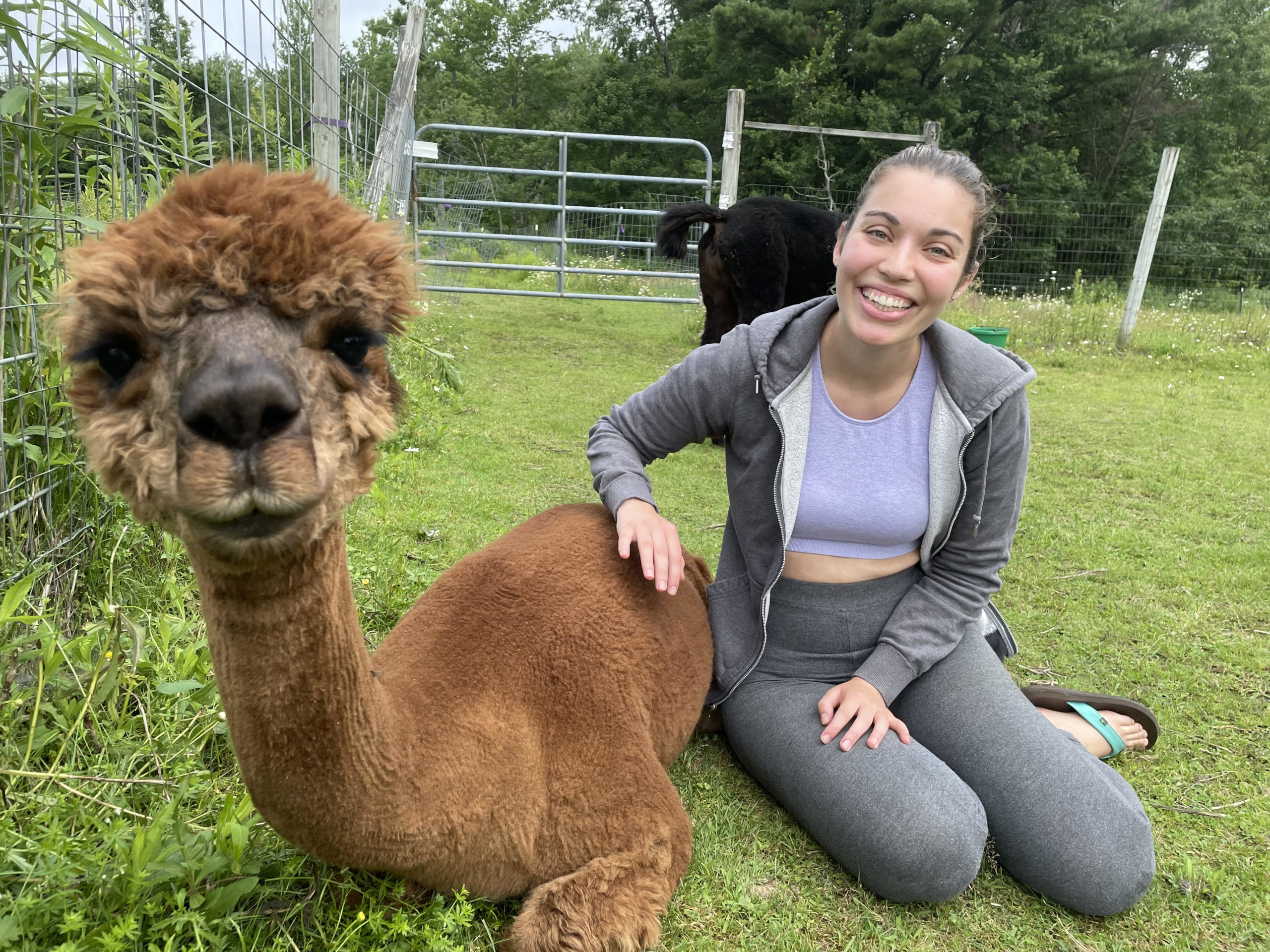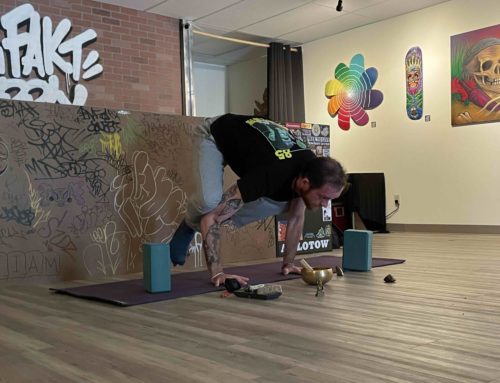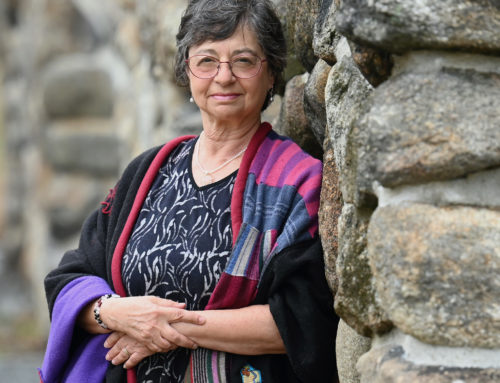HUBBARDSTON, Mass. — Animal-adjacent yoga classes are the latest trend in fitness circles across the country. Goats, sheep, dogs and even cats have joined in on the fun. But a local farm is contributing some fairly unique guests to the activity: alpacas and llamas.
Plain View Farm in Hubbardston is a family-owned and operated alpaca farm that offers alpaca and llama yoga each Sunday.
“They’re the external reflection of your internal self,” said Allison Smith, yoga teacher and animal assisted activity director. “They know what’s happening.”
Smith has been teaching yoga with alpacas at the farm for four years. Smith and farm owner Debbie Tetreault were inspired by a visit to Peru, the alpacas’ indigenous home.
“All of the alpacas have their own personalities,” said Smith, who used to have a corporate job, but now calls Plain View Farm her ‘mentor farm.’ She owns her own alpaca rehabilitation farm with 20 alpacas and brings her animals to different events including those at senior homes.
Smith’s form of yoga is nada yoga, which means “flow” and “union.” With the flow of sounds, specifically the “ohm,” she and her students begin class.
“You’re working through things,” Smith said. “You can see it in the face.”
The alpacas and llamas feel it too. In a recent class, the more docile group in the class’ enclosed grassy area comes closer to the humans, sensing the meditative vibes.
Smith says the group’s vocal work is like “waking something up within the universe,” creating a sound that hits multiple notes at once.
“We get to look to harmonize with nature, our environment, our lives,” Smith said. “When animals become a part of our lives, it really gives us purpose… plus, you’re part of a herd. You may leave the herd, but the herd is never going to leave you.”
By practicing in this environment, Smith says, you “form a human and animal bond. What that does for the human and animal is create oxytocin, almost like a love tonic.”
Scientifically, oxytocin plays a role in social bonding. Historically, Smith said that this started when humans stole wolf pups and started a line of connection between humans and animals, including dogs, horses and alpacas.
“We have an interdependent lifestyle,” Smith said. “That bond is so deeply ingrained within our brains, that to see animals in the field are healthy, it sends us the message from the environment that we’re okay, we have what we need, they have what they need.”
Smith recommends practicing nada yoga before bed, as yogis focus on sounds at different levels, such as cars to birds chirping to a clock ticking, and imagine being transported. The calming movement allows for people to fall asleep quickly and rise out of a “current state of consciousness” that also “activates an internal compass,” Smith said.
“Being an individual healer, I throw the kitchen sink at it,” Smith said, “and in addition use allopathic medicine as well as alternative techniques as well as whatever technique I can come up with yoga that works. So nada yoga is my thing.”
The class flowed through a few poses that helped with tension release, like a continuous two-minute motion of standing on tiptoes, reaching up, making a fist, tensing and then releasing it all with a big breath out.
As the yogis become more comfortable around the alpacas and llamas while continuing their practice, the farm animals also roll in the grass and dirt, enjoying themselves.
Alpacas, who continued to wander around the mats throughout the class, are considered gentle creatures. They are also an income source, with Plain View Farm selling wool goods, such as dryer balls, yarn, cardigans, gloves, beanies and socks. Alpacas do not have incisor teeth, horns or hooves, making them safer than many other animals.
“I find them to be extremely spiritual animals,” Smith said.
Yoga with the alpacas and llamas are offered each Sunday at 10:00 a.m., with each class costing $25 per person. Smith asks that customers bring their own mats. To reserve a spot, contact Plain View Farm on Facebook or call 978-820-1199.







Leave A Comment